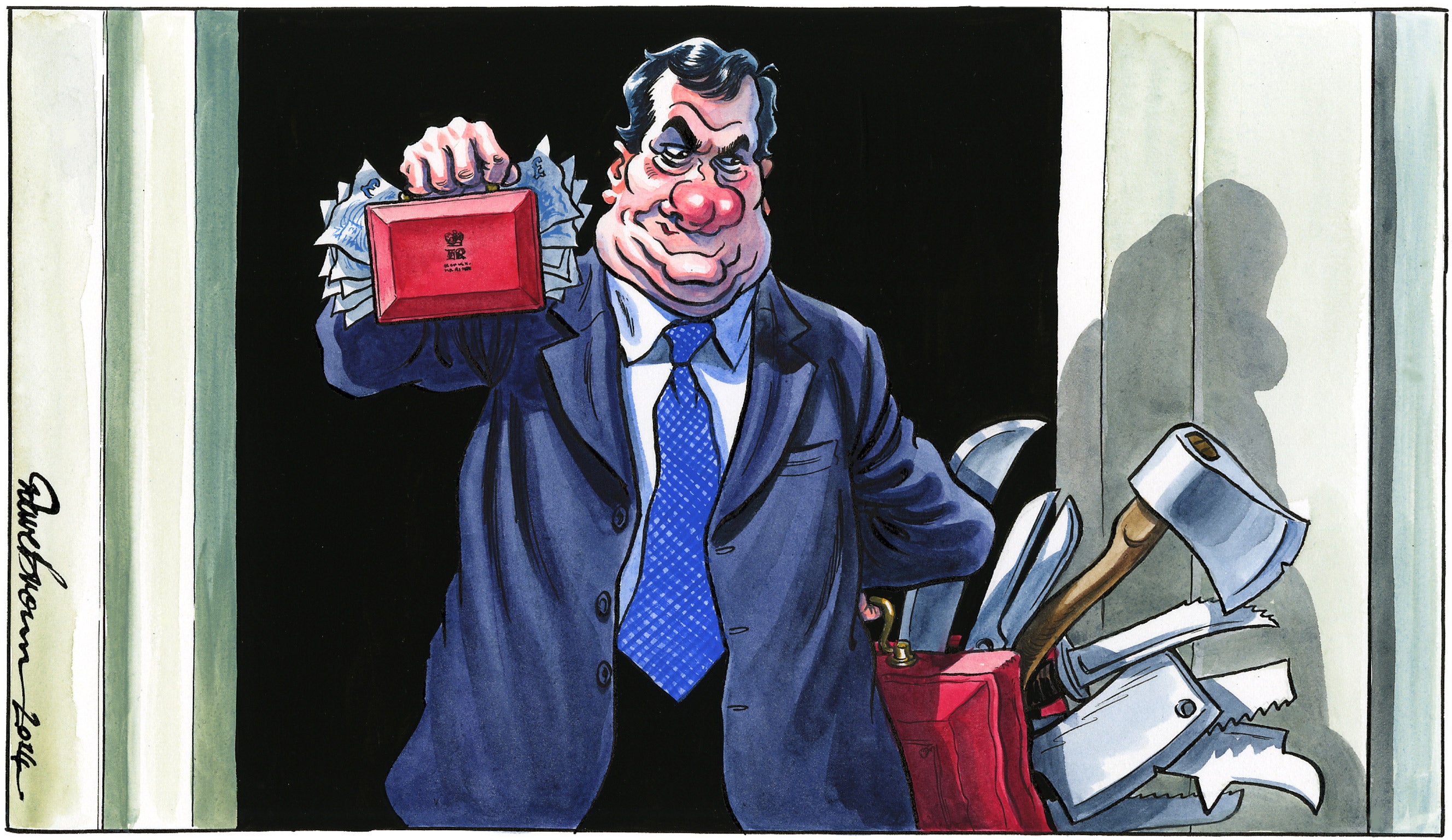Budget 2014: Winners and losers
If you have savings, a fat pension pot or a liking for beer and bingo you will do well from the Budget

Your support helps us to tell the story
From reproductive rights to climate change to Big Tech, The Independent is on the ground when the story is developing. Whether it's investigating the financials of Elon Musk's pro-Trump PAC or producing our latest documentary, 'The A Word', which shines a light on the American women fighting for reproductive rights, we know how important it is to parse out the facts from the messaging.
At such a critical moment in US history, we need reporters on the ground. Your donation allows us to keep sending journalists to speak to both sides of the story.
The Independent is trusted by Americans across the entire political spectrum. And unlike many other quality news outlets, we choose not to lock Americans out of our reporting and analysis with paywalls. We believe quality journalism should be available to everyone, paid for by those who can afford it.
Your support makes all the difference.When George Osborne suggested in his Budget speech that the economy was recovering faster than forecast, millions probably wondered when that recovery would trickle down to them.
"Support for savers is at the centre of this Budget," the Chancellor promised. He backed that up by increasing the amount you can stash in a tax-free Isa to £15,000 from July and scrapping the distinction between cash and equity Isas to allow people to shift money between the two.
He then announced widescale changes to pensions – which are, after all, just long-term savings schemes – to make them more flexible and stop people being forced to take out an expensive annuity with their pension pot.
All positive for those with more than £11,000 of savings or a decent sized pension pot. But what about the millions of "hard-working people" – as Osborne's oft-repeated mantra has it – who have neither? Is there any good news in the Budget for them?
No. Not unless they're beer-drinking bingo-players in a two-parent family where both parents work.
If that's not you either, how will the changes announced in this year's Budget affect you? In fact, with savings rates at historic lows, even those who can afford to stash a few thousand in the new-look Isas won't be that better off in the short-term.
It is calculated that moving money from a standard deposit account into an easy access Isa up to the new limit will yield only an extra £30 worth of interest in a year.
Meanwhile, if you're a smoker, drinker or driver (hopefully not the last two together) your bills will rise. The personal finance website Money Dashboard has crunched some numbers for us to see how the changes will affect you.
In a nutshell, they reckon smokers will pay £69.06 more a year, drinkers will have to find an extra £19.76, while drivers will pay an additional £38.32 a year.
So who are the actual winners and losers after the 2014 Budget? Our analysis of the figures published on these pages, calculated by accountants Blick Rothenberg, reveals that, other than well-heeled savers who will benefit from the pension and Isa changes, there are two particular categories of people who will be better off than all others in the next tax year 2014-15, taking into account the latest changes to the tax regime.
The biggest winners will be married couples where both partners earn, who have two children, but who earn £30,000 a year gross between them. They will be a far-from-generous £33 better off.
Celebrating, if that's not too strong a word, that extra cash for the household budget next year, with the same £33 boost, will be pensioner couples born between 1938 and 1948 whose gross income is an already generous £150,000 or more.
However, the extra £2.75 a month is probably going to mean less to them than to the married couple with kids, even though the extra cash only just covers the cost of a comic once a month for their children.
Who will be worse off next year? Most working people earning £125,000 a year or more will be hardest hit, facing a £4 deficit in their post-tax income in 2014-15.
That includes single people and married people with two kids where just one parent earns. Oddly enough, if both parents earn a total of £125,000 or more, their income is set for an annual boost of £28.
What about in the tax year 2015-16? A married couple who are both earners and have two children will be £40 better off if they earn £25,000. If they earn less, just £20,000, they can look forward to being £39 better off in 2015-16.
However, if a married couple with two children has just one partner earning, they will be £39 better off if they earn between £15,000 and £30,000.
The 2015-16 losers? It's those working people earning £125,000 a year who who will face a second year of being hardest hit. Single people and married people with two kids and one earner will see their incomes shrink by a further £3 in the tax year after next.
How will you do? Check your income against that closest to your own, according to which category you fall nearest to. The majority are a few quid better off, which is presumably largely down to the increase in the personal tax allowance to £10,500.
Join our commenting forum
Join thought-provoking conversations, follow other Independent readers and see their replies
Comments